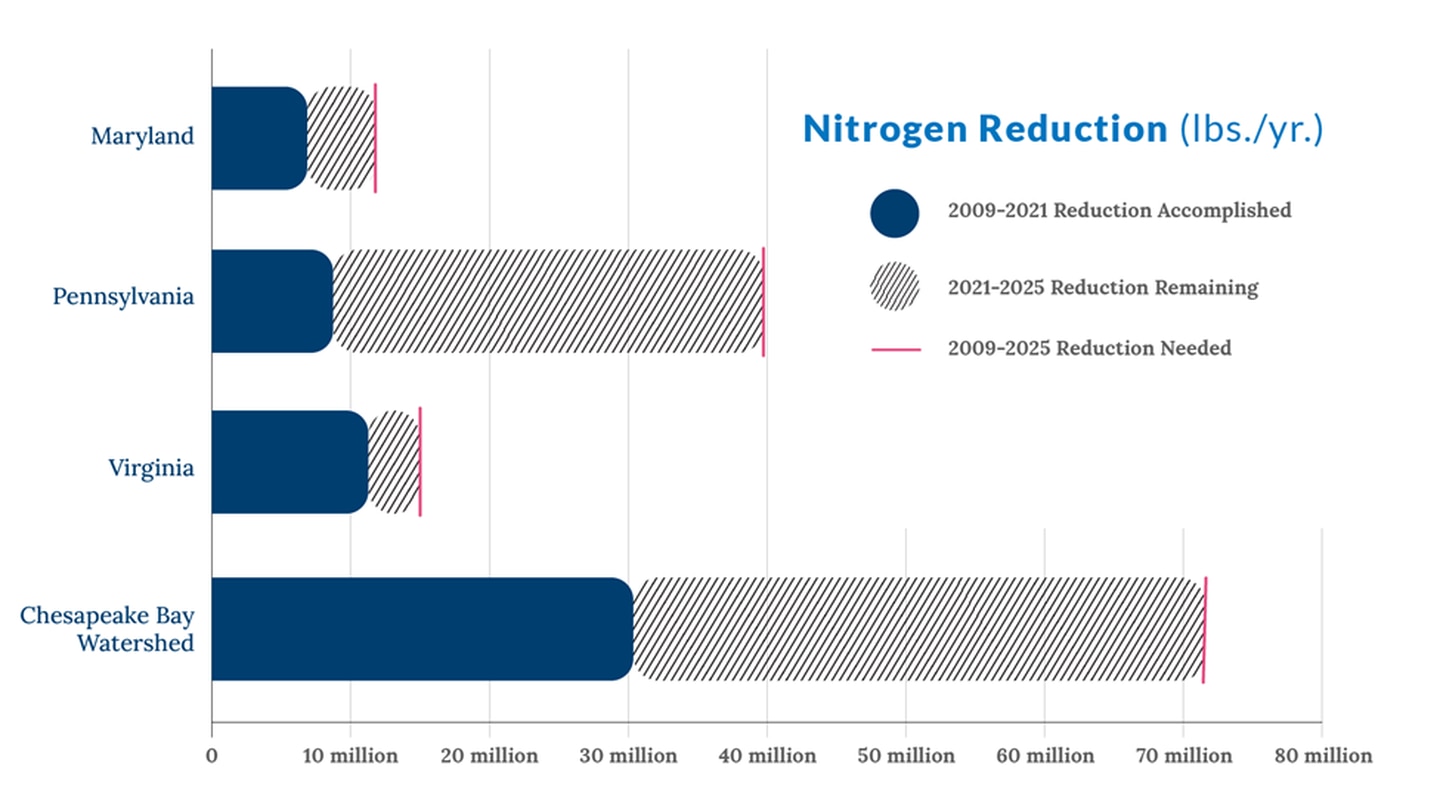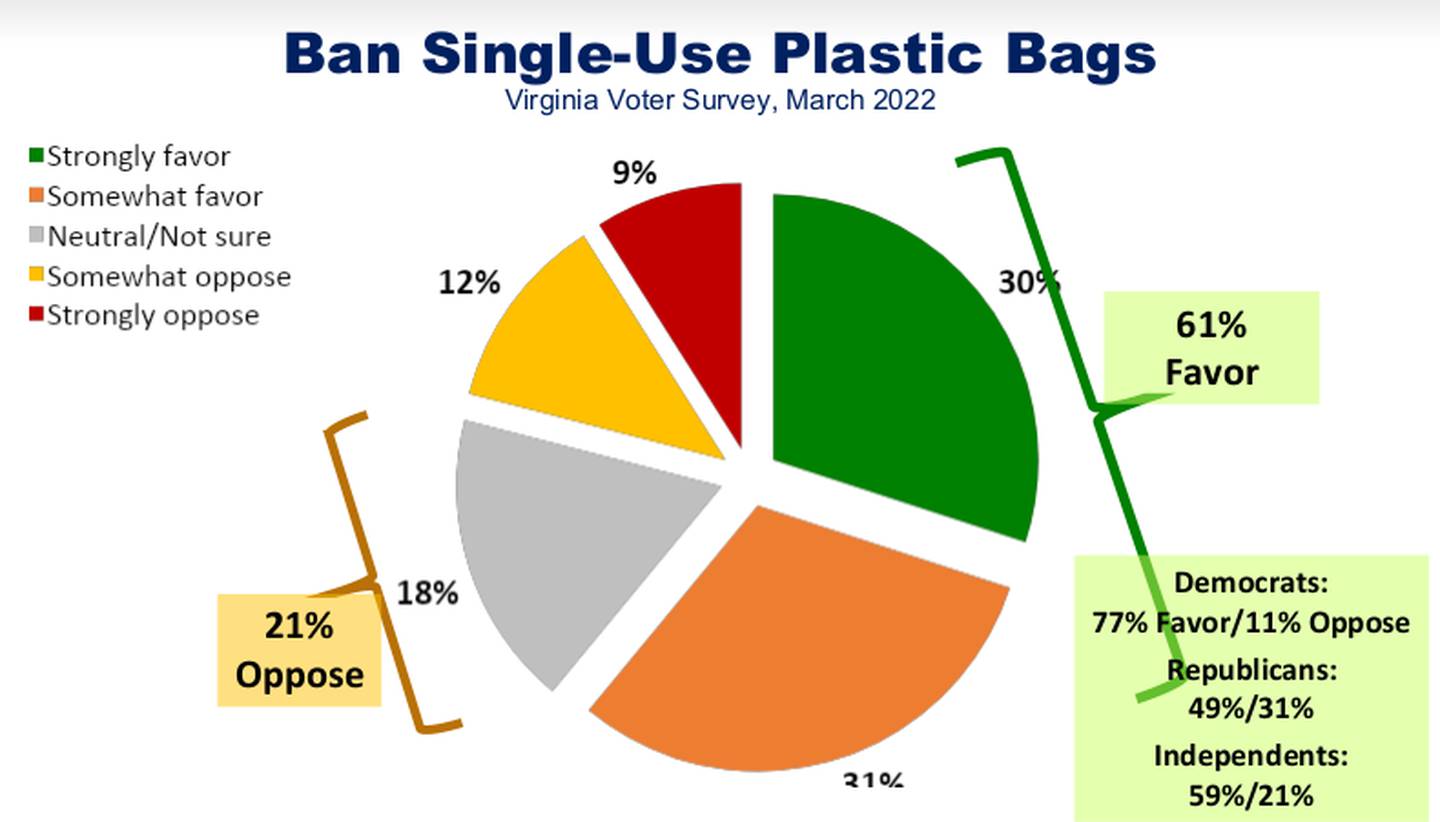A majority of Virginia voters are concerned about pollution, particularly plastics clogging waterways and runoff that contaminates waters, according to a recent survey by the Virginia Coastal Zone Management Program, Clean Virginia Waterways at Longwood University and OpinionWorks. Most voters also support legislation to cut pollution.
Steve Raabe, founder and president of OpinionWorks, also said that he was surprised that while 87% of respondents called water pollution a serious problem, most didn’t realize that it comes from people discarding plastic bottles, tires, food containers and more on land.
Advertisement
When the respondents think of ocean debris, he said, they assumed it came from fishermen dumping trash.
According to the study, 87% of the 901 surveyed said plastic in the water is at least a “somewhat-serious” problem, while 65% of people said land litter was at least a “somewhat-serious” problem. Nearly 80% said they are most concerned about harmful chemicals and toxins in water.
Advertisement
The Chesapeake Bay Foundation on Wednesday released its 2022 State of the Blueprint report, which found Virginia, along with Maryland and Pennsylvania, are not on track to meet their pollution reduction goals in lowering nitrogen, phosphorous and sediment levels.

Hilary Falk, the Chesapeake Bay Foundation director, wants the states to recommit to the blueprint.
Virginia has improved in areas such as wastewater mitigation — meaning waste water treatment facilities are performing better because of infrastructure upgrades. The report states the commonwealth has a chance to get back on track because of these improvements but lags in decreasing in the amount of runoff.
“That approach is not sustainable,” said CBF Virginia Executive Director, Peggy Sanner. “About 90% of Virginia’s remaining pollution reductions must come from agriculture, and population growth and climate change are leading to more polluted runoff from developed areas.”
According to Chris Moore, a CBF senior regional ecosystem scientist, pollutants such as nitrogen attaches to plastics. Fish eat the debris and get sick.
“Unfortunately, a lot of our plastic pollution that gets into our waterways comes from runoff,” Moore said. “It’s stuff that gets discarded on streets or maybe blows out of someone’s car, blows off someone’s lawn, eventually gets swept up in stormwater.”
Earlier this year, the Virginia Best Management Practices program, which helps control farm and urban runoff, received historic funding of $295 million over the next two years. It uses a cost-share program that helps farmers pay for fences to go around bodies of water and prevent livestock from entering and contaminating the runoff.
However, according to Sanner, such investments may not be enough.
Advertisement
Today’s Top Stories
Daily
Start your morning in-the-know with the day’s top stories.
There is a possibility that the 2025 blueprint deadline will be pushed back, but CBF and state officials will discuss how to stick as close to the original deadline as possible. Problems like inflation, which increases costs, and the need for more funding are barriers to meeting the 2025 pollution goals.
The voter survey included interviews conducted in March among residents across political parties, ethnic, racial and gender lines. Raabe said the survey was statistically representative of the state with a 3.3% margin of error.
It showed the participants support legislation to help prevent litter: 61% support a ban on single-use plastic bags; the majority also supported banning plastic straws and polystyrene (plastic foam). Less than half — 41% — were in favor of a 5-cent tax for using grocery store plastic bags.

Legislation calling for phasing out plastic foam containers has been pushed back this year and Gov. Glenn Youngkin released an executive order in April that repealed a plastic bottle ban among state agencies.
According to Raabe, many shoppers forget to use reusable bags, even when they keep them in their cars. But, stores, he said, could display signs reminding people to grab them before coming in.
Also in the survey, 23% of the participants said they chose bottled water instead of tap water, even in areas where the tap water is considered safe. Nearly 40% said they drink bottled water often.
Advertisement
Everett Eaton, 262-902-7896, everett.eaton@virginiamedia.com
